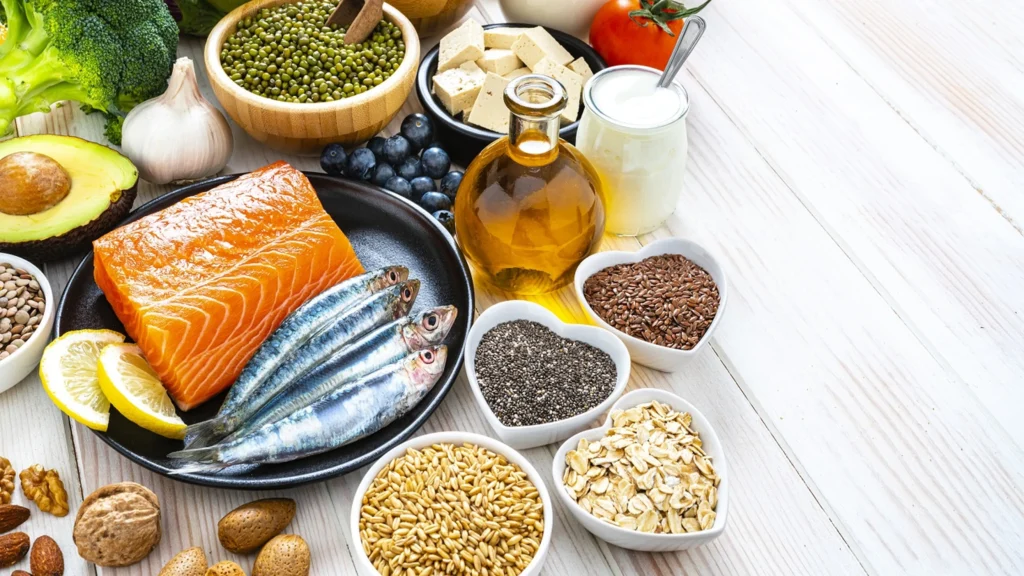When it comes to healthy eating, the Mediterranean diet often steals the spotlight. But there’s another nutritional gem that deserves attention: the Atlantic Diet. Rooted in the culinary traditions of coastal regions in Northern Portugal and Northwestern Spain, this diet emphasizes fresh, local, and seasonal foods. With its focus on seafood, vegetables, and whole grains, the Atlantic Diet is not only delicious but also offers numerous health benefits.
In this blog post, we’ll explore what the Atlantic Diet is, its key components, and how it can benefit your health.
What is the Atlantic Diet?
The Atlantic Diet is a traditional eating pattern inspired by the dietary habits of people living along the Atlantic coast of Southern Europe. It shares similarities with the Mediterranean diet but has its own unique characteristics, particularly its emphasis on seafood and locally sourced ingredients. This diet is deeply connected to the region’s culture, climate, and agricultural practices, making it both sustainable and nutritious.
Key Components of the Atlantic Diet
- Abundance of Fresh Seafood
Fish and shellfish are staples of the Atlantic Diet. Rich in omega-3 fatty acids, seafood supports heart health, brain function, and reduces inflammation. Common choices include cod, sardines, mackerel, and clams. - Seasonal Vegetables and Fruits
The diet includes a variety of fresh, seasonal vegetables like kale, cabbage, turnips, and onions, as well as fruits such as apples, oranges, and pears. These provide essential vitamins, minerals, and antioxidants. - Whole Grains
Whole grains like rye bread, oats, and corn are a key part of the Atlantic Diet. They provide fiber, which aids digestion and helps maintain stable blood sugar levels. - Legumes and Potatoes
Beans, lentils, chickpeas, and potatoes are common in this diet. They are excellent sources of plant-based protein, fiber, and complex carbohydrates. - Olive Oil
Like the Mediterranean diet, the Atlantic Diet uses olive oil as the primary fat source. Olive oil is rich in monounsaturated fats and antioxidants, which promote heart health. - Dairy in Moderation
Cheese and milk are consumed in moderation, often in the form of fresh, locally produced dairy products. - Minimal Processed Foods
The Atlantic Diet avoids heavily processed foods, focusing instead on whole, natural ingredients. - Moderate Wine Consumption
Wine, particularly red wine, is enjoyed in moderation, usually with meals.
Health Benefits of the Atlantic Diet
- Supports Heart Health
The emphasis on seafood, olive oil, and whole grains makes the Atlantic Diet excellent for cardiovascular health. Omega-3 fatty acids from fish help reduce cholesterol levels and lower the risk of heart disease. - Promotes Weight Management
The diet is rich in fiber and low in processed foods, which helps control appetite and maintain a healthy weight. - Reduces Inflammation
The antioxidants in fruits, vegetables, and olive oil, combined with the anti-inflammatory properties of omega-3s, help reduce chronic inflammation linked to diseases like arthritis and diabetes. - Improves Digestive Health
The high fiber content from whole grains, legumes, and vegetables supports a healthy gut microbiome and prevents digestive issues like constipation. - Boosts Brain Health
Omega-3 fatty acids from seafood are essential for brain function and may reduce the risk of cognitive decline and neurodegenerative diseases like Alzheimer’s. - Enhances Longevity
The nutrient-dense, balanced nature of the Atlantic Diet contributes to overall well-being and may increase lifespan by reducing the risk of chronic diseases. - Sustainable and Environmentally Friendly
The Atlantic Diet emphasizes locally sourced, seasonal foods, which reduces the carbon footprint associated with food transportation and supports local agriculture.
How to Adopt the Atlantic Diet
- Prioritize Seafood
Aim to eat fish or shellfish at least 2-3 times per week. Choose sustainable options like sardines, mackerel, or cod. - Load Up on Vegetables
Fill half your plate with seasonal vegetables like leafy greens, root vegetables, and cruciferous veggies. - Choose Whole Grains
Swap refined grains for whole grains like rye bread, oats, and brown rice. - Use Olive Oil
Replace butter or other cooking oils with extra virgin olive oil for cooking and dressing salads. - Incorporate Legumes
Add beans, lentils, or chickpeas to soups, stews, and salads for a boost of plant-based protein. - Enjoy Fresh Fruits
Snack on fresh, seasonal fruits or add them to desserts and smoothies. - Limit Processed Foods
Avoid sugary snacks, processed meats, and packaged foods as much as possible.

The Atlantic Diet is a flavorful, nutrient-rich way of eating that offers numerous health benefits. By focusing on fresh, locally sourced ingredients like seafood, vegetables, whole grains, and olive oil, this diet supports heart health, brain function, and overall well-being. Plus, its emphasis on sustainability makes it a win for both your health and the planet.
If you’re looking for a fresh approach to healthy eating, why not give the Atlantic Diet a try
Share your thoughts or favorite Atlantic-inspired recipes in the comments below! 🌊🍴

